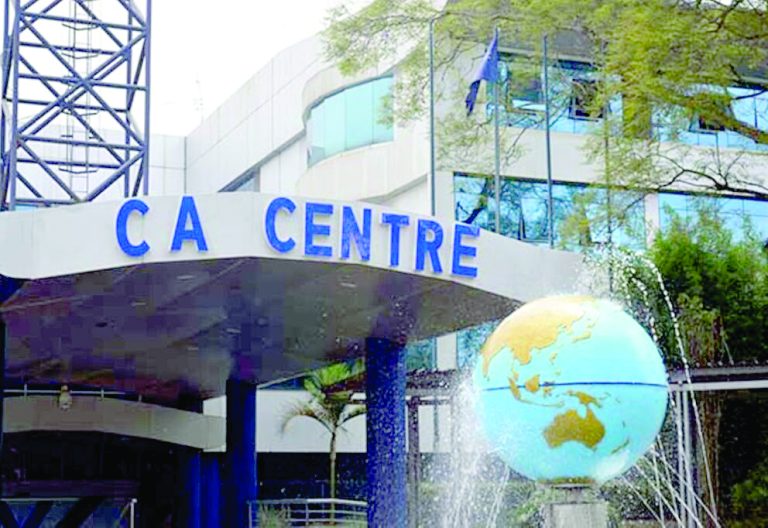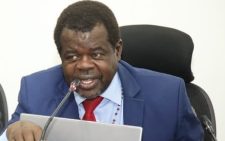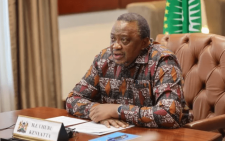Solicitor General, CA support Mary Wambui in Sh5b tender award

The Solicitor General and the Communications Authority (CA) have thrown their support behind Mary Wambui in an ongoing Sh5 billion tender case, arguing that the procurement process adhered to legal and regulatory frameworks.
The case, filed by the Consumers Federation of Kenya (Cofek), alleges that CA violated constitutional principles on integrity and leadership by awarding contracts to entities linked to Wambui, the board chair of the authority.
Cofek claims that the tendering process for the Digital Super Highway Project was flawed and that Wambui’s involvement constitutes a conflict of interest. The Digital Super Highway Project, which is a government-approved initiative, meant to expand ICT infrastructure, lower internet costs, and enhance digital access to essential services like healthcare, agriculture, and finance.
“This is a Cabinet-approved project which aims at: strengthening the country’s ICT infrastructure by increasing the network coverage across the country; reducing cost of internet connectivity and enhancing the delivery of e-government services, health services, agricultural services and financial services”, Cofek stated.
The project is financed through the Universal Service Fund, which is managed by CA, with an estimated Sh15 billion earmarked for its implementation in two phases.
Disregarding the law
According to court documents, Cofek asserts that entities linked to Wambui were awarded contracts in a manner that disregards constitutional and statutory values on integrity, good governance, and leadership.
The organization is seeking a court declaration to nullify the awarded contracts and compel the return of funds allocated to these entities.
They further claim that Wambui and CA leadership breached public trust by facilitating these awards.
CA Director General and CEO Douglas Mugonyi defended the procurement process, stating that Wambui was appointed as CA board chair in December 2022 and had no direct role in the tendering.
He said that CA and the ICT Authority (ICTA) signed a Memorandum of Understanding (MoU) on December 11, 2022, to formalize their partnership in implementing the Digital Super Highway Project. The MoU outlined the governance structures and distinct responsibilities of each entity in project execution.
Mugonyi said the tendering process followed open national tendering procedures, specifically under Tender No. ICTA/CIT/11/2022-2023 and Tender No. ICTA/OT/13/2022-2023 and maintained that at no point did Wambui or CA interfere in the procurement or awarding of tenders.
The procurement process
“I am further aware that Tender No. ICTA/CIT/11/2022-2023 for the procurement of Digital Super Highway-Last Mile and Public Wi-Fi Connectivity on a Three-Year-(Framework Contract) in Lots and Tender No. ICTA/OT/13/2022-2023 for the procurement of Digital Super Highway Backbone arid Metro (Framework Contract in Lots were sawed using open national tendering method)”, Mugonyi says.
According to the CEO, upon the award of the orders, the contracts were executed anchialvely between ICTA and the respective contractors.
At no point did the respondents participate in the procurement process.
Further reinforcing CA’s position, Mugonyi pointed out that Nightingale Enterprises Limited, an entity linked to Wambui, participated in the tendering process as any other company would.
By the time of submitting the tender, Wambui had already resigned as a director and shareholder of the company, ensuring no direct involvement in its operations.
He also clarified that CA’s approval of the project budget was a statutory requirement and did not constitute undue influence over procurement decisions.
The Solicitor General has echoed CA’s stance, arguing that there is no evidence to support claims of irregularities or favouritism.
The government contends that the project is critical for the country’s digital transformation and will significantly benefit the public.
The Digital Super Highway Project aims to install 100,000 kilometres of fibre-optic cables, establish 25,000 public hotspots, create 1,450 Digital Village Smart Hubs and Studios, and develop three data centres with enhanced cybersecurity management. These initiatives are expected to bridge the digital divide and improve service delivery across Kenya.
Despite these defences, Cofek remains steadfast in its push for judicial intervention, insisting that public procurement laws were violated.
The Kenyan Public is set to benefit from 100,000 Kilometers of fibre cables, 25,000 public hotspots, 1450 Digital Village Smart Hubs and Studios, 3 data centres and data protection and cyber security management all of which are expected to be set up should the project be properly and effectively implemented.









